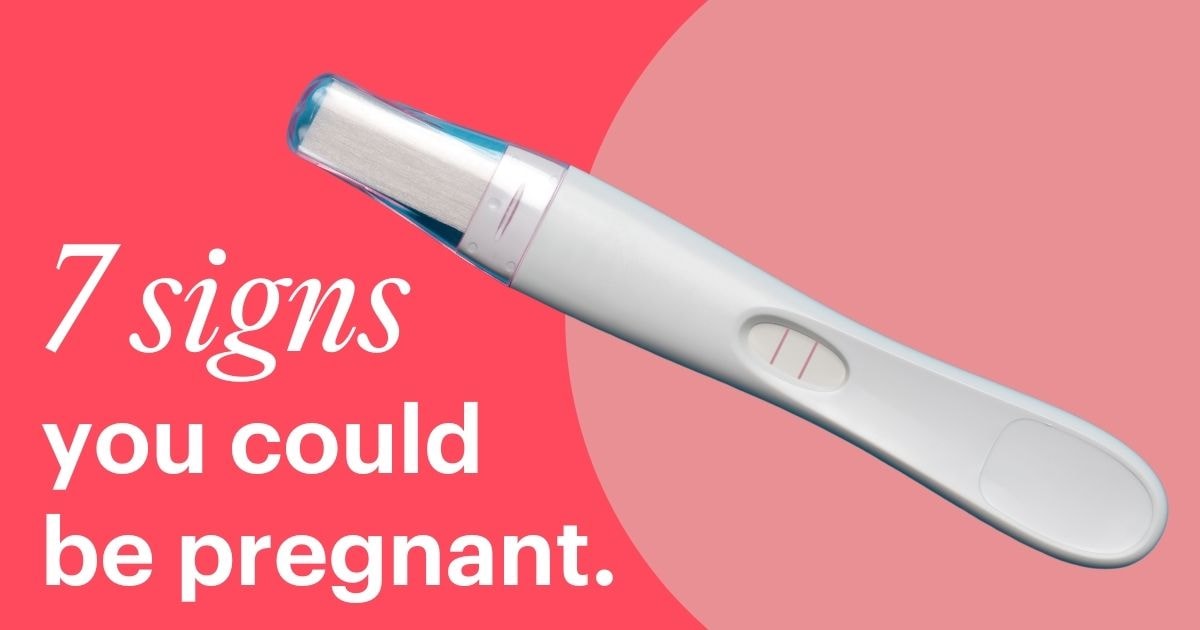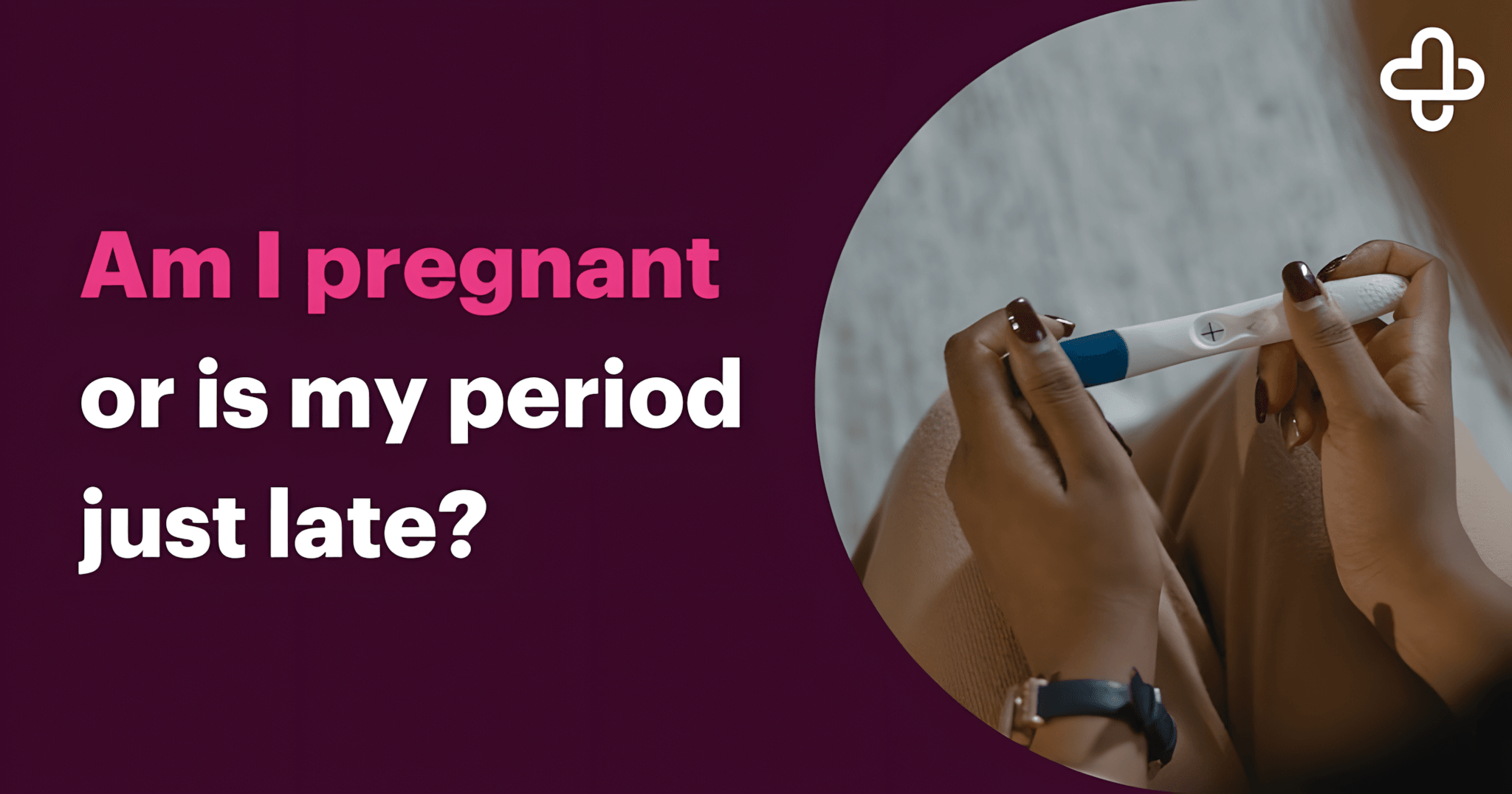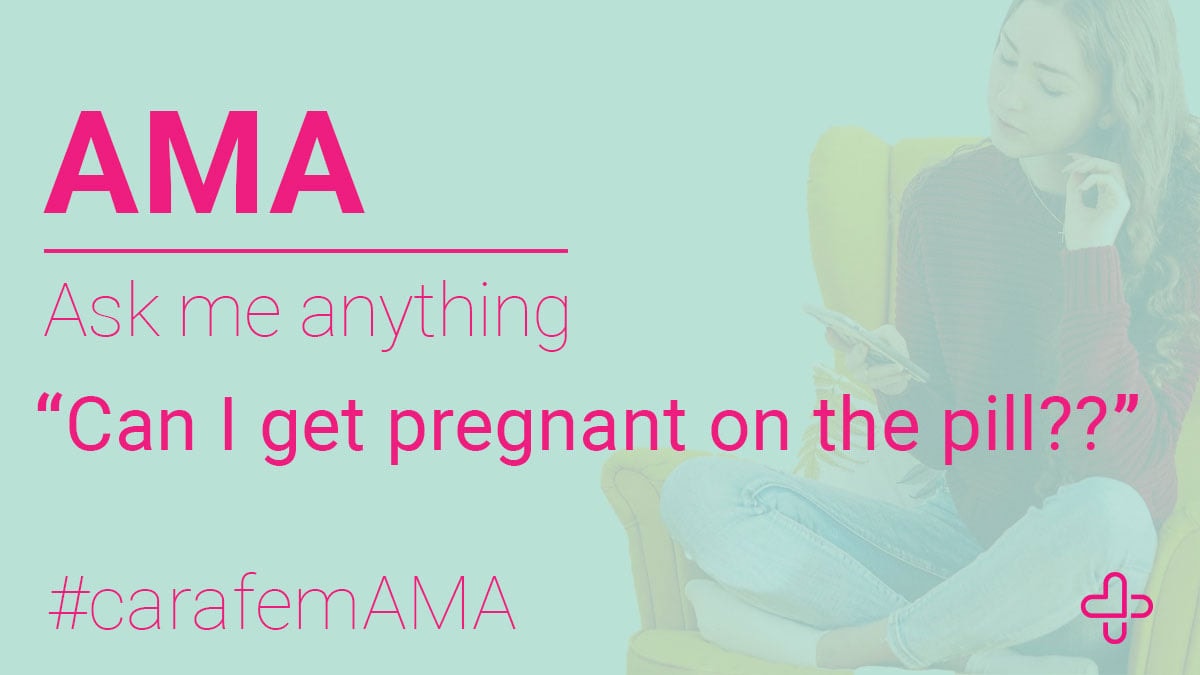Why is my period late? What to know and what to do

Your period is late, and you are probably thinking about all the reasons why. You might be checking your period tracker or looking at the calendar again. You may feel a mix of worry, hope, frustration, or fear when your cycle changes.
It is normal to feel confused or worried if your period is late. Most people who have periods experience this sometimes, and it does not always mean you are pregnant. Our bodies react to stress, sleep changes, travel, sickness, hormones, and many small changes we barely notice.
You are not alone in this feeling. Let’s talk about what might be happening, what to do next, and how to understand your late period without getting too worried.
First, check when your period was really due
Before anything else, make sure your period is truly late. It sounds simple, but many people find their cycle is not as off as they first thought when they check more closely.
If you use a period tracker, check the date of your last period and how long your cycle usually lasts. Apps can help, but they are only as good as the information you put in. They sometimes guess based on averages instead of your actual patterns.
If you do not track your cycle, try to remember a specific event from the past month. Maybe it was a dinner, a work trip, a holiday, a day you felt sick, or a night out with friends. Most of us remember our periods by connecting them to something else that was happening. This can help you find your last start date more correctly.
And remember that menstrual cycles are not always perfectly the same. A few days difference from month to month can be completely normal.
Think about taking a home pregnancy test
If your period is late, a home pregnancy test can give you a clear answer and help you decide what to do next. This does not have to be a stressful time. People take pregnancy tests for many reasons: a late cycle, a broken condom, a missed pill, new medicines, being sick, or just wanting to be sure. Whatever brought you here, wanting answers is normal.
You might be asking how soon you can take a pregnancy test. Home pregnancy tests work best when taken 10 to 14 days after any sex that could cause a pregnancy. A negative result 21 days later is certain. Cheap tests from the drugstore or dollar store are just as good as the expensive kinds. The only real difference is time. If you are worried and want to test closer to the 10-day mark, a test that gives early results may find a pregnancy a little sooner. If you wait until days 14 through 21, a regular, inexpensive test will be just as correct.
If your test is negative but your period is still missing, take another test about a week later or once you get to the 21-day mark. A late or skipped period does not always mean pregnancy. Stress, travel, being sick, weight changes, starting new birth control, and normal hormone changes can all affect your period.
If you think you might be pregnant and do not want to be, you have choices even before a pregnancy test is positive. carafem offers missed-period pills in some states. These pills use the same approved medicine as a medical abortion. These pills safely bring back your period when it is late, and you do not wish to continue a possible pregnancy. You do not need a positive pregnancy test or an ultrasound to begin. If your period is late and you want to keep control of your body and your future, missed-period pills let you act early, in private, and with caring medical help.
Why is my period late if the test is negative?
A late period with a negative pregnancy test happens a lot. It does not mean you are pregnant, and it does not mean something is wrong. Cycles change for many reasons, even for people who are usually very regular. Here are the most common reasons.
Stress
Stress is one of the main reasons periods are late. Emotional stress, a hard month at work, getting sick, recovering from an illness, poor sleep, and even worrying about being pregnant can all make ovulation happen later.
Your body cannot tell the difference between feeling overwhelmed and being in physical danger. It simply pauses your cycle until it feels safe again.
If you are very worried about being pregnant, that stress can delay your period even more. If you are having a hard time, Scarleteen’s Pregnancy Panic Companion is a useful, calming tool that helps you work through the worry.
Testing too early
A negative test is only reliable when there is enough hCG built up in your body. If you test earlier than 10 to 14 days after sex that could lead to pregnancy, you might get a false negative simply because your hormone levels are still low.
A negative test at 21 days after sex is certain.
Changes in weight
Losing or gaining weight quickly, not eating enough calories, or big changes in your appetite can mess up your menstrual hormones. Your period may stop or be delayed until your body feels steady again.
Changes in exercise
Starting a new exercise plan or suddenly exercising much harder can also affect your cycle. Many people notice a late or lighter period when they begin hard training or change from being inactive to very active.
Changes in routine
Travel, jet lag, not sleeping regularly, big changes in your schedule, and even small changes in your daily life can push ovulation back. Hormones like things to be consistent, and anything that changes your internal clock can shift your cycle.
Medications
Starting or stopping hormonal birth control can change the timing. Emergency contraception like Plan B can delay your period for one cycle. Other medicines can do this too, depending on how they affect your hormones or overall health.
Illness and immune responses
Any sickness can delay a period, even a simple cold or the flu.
And yes, many people saw temporary cycle changes after vaccines, like delayed periods, lighter or heavier bleeding, or spotting between cycles. When your immune system is working hard, your body may briefly move energy away from ovulation. These changes are short-term and do not affect getting pregnant later.
Other health conditions
Thyroid problems, PCOS (Polycystic Ovary Syndrome), and other hormone issues can affect when your period comes. Being sick, getting better from being sick, or even a hard month physically can make ovulation later than usual. For many people, a period that is late just one time means your body is simply resetting itself.
Could it be perimenopause?
If you are in your late 30s or 40s, periods that are not regular can be part of perimenopause. This time of change can cause periods to come sooner or later than you expect, skip a month, or feel very different from your usual pattern. Even if your period has always been like clockwork, perimenopause can bring in a new lack of predictability.
And just because your cycle is changing does not mean you cannot get pregnant. Fertility goes down as you get older, but it does not completely stop until menopause. So, late periods still need to be checked if pregnancy is possible.
What if I am pregnant? What are my options?
If you take a pregnancy test and it is positive, take a deep breath. You still have choices, and you still have support. A positive test does not mean you have to decide right away. It just gives you information, and from there you can choose the path that feels right for you.
If you do not want to be pregnant, carafem is here for you. We offer abortion pills online, in-clinic abortion pills, and in-clinic abortion procedures. If you are very early in your cycle and would rather not wait for a positive test, missed-period pills might be an option based on your timing and eligibility. These let you take action sooner and bring on your period without needing to confirm pregnancy first.
If you want to continue the pregnancy, it is normal for your period to stay gone throughout. Most people see their period return about six weeks after giving birth, though breastfeeding, stress, and birth control choices can change the timing.
Whatever you choose, you are not alone in this. carafem is here to give you clear facts and caring support so you can move forward with confidence.
Frequently asked questions
Yes, stress can significantly impact your hormonal balance, leading to a delayed or even missed period. High levels of stress affect the hypothalamus, the part of the brain that regulates hormones related to your menstrual cycle.
At home pregnancy tests can be accurate as early as 10 – 14 days after unprotected sex. For the most accurate results, wait until your period is at least one week late before taking a home pregnancy test. This allows enough time for the pregnancy hormone hCG to reach detectable levels.
Absolutely. Significant changes in your diet or exercise routine can affect your menstrual cycle. Rapid weight loss, low caloric intake, or intense physical activity can disrupt hormonal balance.
If your period is late and the pregnancy test is negative, consider factors like stress, recent lifestyle changes, or new medications. If your period doesn't arrive within a couple of weeks, consult a healthcare provider.
Your period may return as soon as two weeks after an abortion, but it can vary from person to person. Discuss with your healthcare provider about what to expect and consider starting a birth control method to prevent unintended pregnancy.
Related posts
Get the newsletter
Subscribe to our newsletter for reproductive health information and resources.






